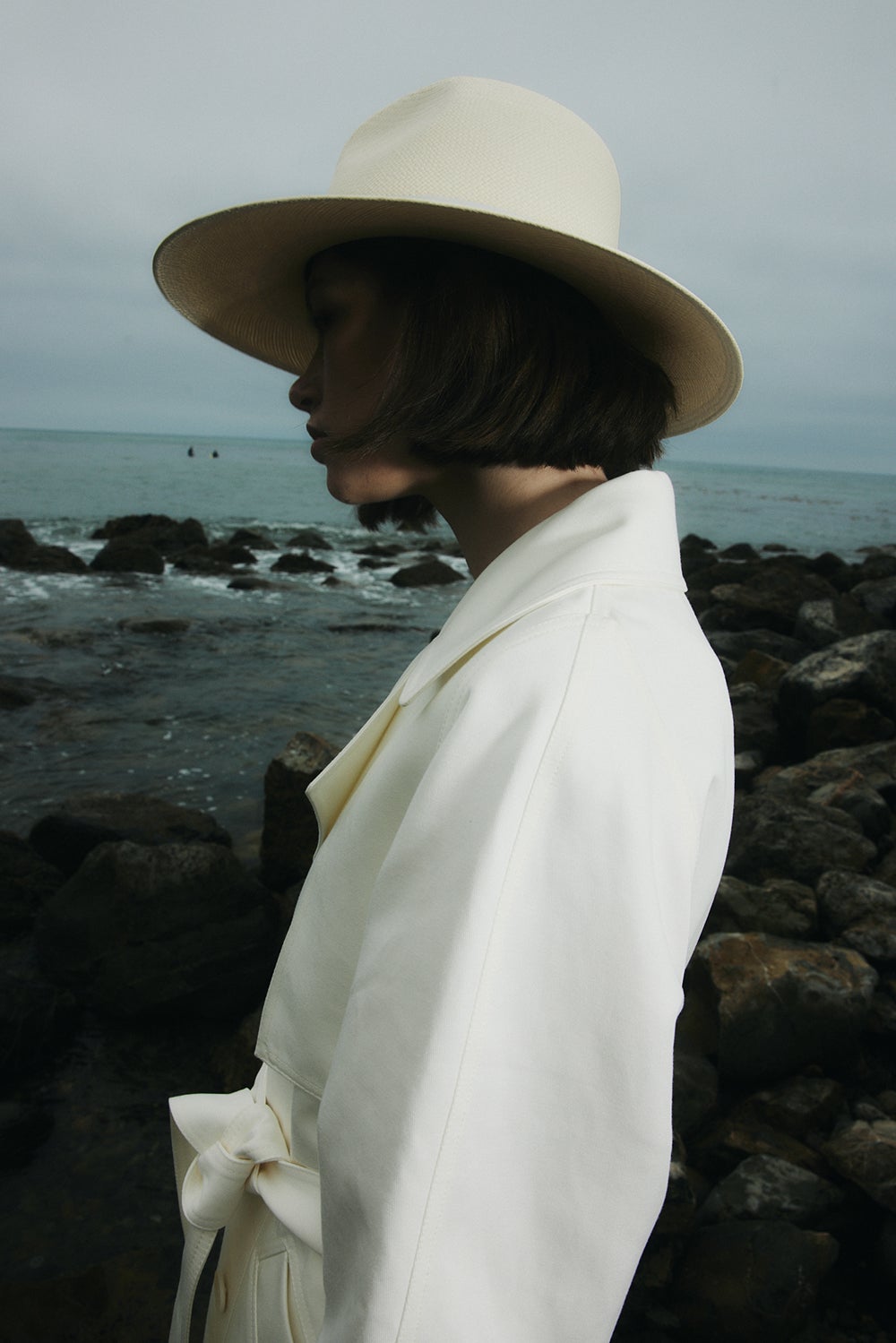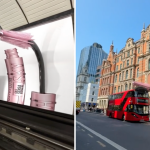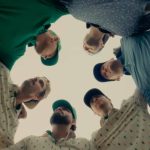“I genuinely love hats,” Janessa Leoné, founder of the fashion brand that shares her name, says. “They’re a beautiful accessory to — pun intended — top off a wardrobe and make you look so put together. It demands a level of confidence: I’m wearing a hat, and I’m noticeable. I’m going to own this and be very self-aware and present in my own body.”
Leoné had always dreamed of launching her own fashion brand growing up in San Diego, California. Hats seemed like the perfect way into the industry: Some of fashion’s biggest brands, including Chanel and Halston, got their start with the accessory, after all.
“Fashion’s always cyclical,” Leoné says, “[but] hats are such a cultural mainstay in Europe, and they weren’t really in America [at the time]. I wanted to bridge the gap between my Italian heritage and California upbringing and use it as a way to launch into the fashion world.”
So that’s just what she did.
Today, Leoné’s brand, which began as a side hustle with $10,000 from her personal savings and just six sample hats, is an eight-figure business that’s sold more than half a million hats and cultivated a celebrity fan base that includes Jessica Alba, Chrissy Teigen and Hailey Bieber, among others.
Image Credit: Courtesy of Janessa Leoné
It took Leoné 10 years to achieve this level of renown, but to outsiders looking in, the brand’s popularity skyrocketed seemingly overnight — Leoné’s sophisticated, recognizable hats, of “quality that could withstand the test of time,” proliferated in Hollywood and beyond. You’ve likely seen them, though you might not have been familiar with Leoné herself.
Related: 5 Inspiring Guys Who Prove Overnight Success Is BS | Entrepreneur
Despite the brand’s success, Leoné’s founding journey wasn’t exactly a linear one. The L.A. designer sat down with Entrepreneur to share the fate-filled, “quite kismet” story of how her brand came to be.
“Everything was so perfectly aligned and beautifully romantic.”
Leoné’s dad encouraged her to get a “proper education,” so she went to college and studied English literature. While in school, she traveled to Paris, and what she found on that trip would ultimately shift the trajectory of her career.
It was a men’s dress hat in a little vintage shop in the Marais neighborhood. Always one to appreciate the “heritage and story of hats,” Leoné immediately set out to uncover the hat’s origins and craftsmanship.
The find spurred a deep research and development phase: She spoke with cowboys in Texas and Amish milliners in Pennsylvania to dissect how it was made — and who made it. The answer to the latter question came when Leoné removed the hat’s sweatband and found its maker’s signature inside.
His name? “Leoné” — the very same as her own. The hat was made in Italy in the 1940s. “Everything was so perfectly aligned and beautifully romantic,” Leoné recalls.
Leoné had a clear vision and needed to find a manufacturer, but it wouldn’t be easy. Although hatmaking saw a resurgence in the 1970s and 1980s, interest had waned, and the handmade aspect meant additional challenges.
As a result, Leoné received some very dismissive responses to her idea. You really want to do this? Women don’t wear hats in America. “It was quite patronizing,” Leone says. “There were a lot of ‘sweethearts.'”
But Leoné stood firm, and armed with $10,000 in personal savings she’d earmarked for her venture, she finally found a manufacturer in Texas willing to give her a chance. She had six samples made — then hit another major roadblock.

Image Credit: Courtesy of Janessa Leoné
Related: Entrepreneurship Is All About Overcoming Obstacles | Entrepreneur
“I talked myself out of it for about three years.”
Leoné was confident in her passion for fashion and design, but, still in her early 20s, the self-doubt crept in, and she wondered if she was on the right path. Who am I to think that I can do this? Who am I to think that I have what it takes?
“Women worldwide are often told: ‘Don’t think of yourself that highly. You don’t get to do that,'” Leoné says. “So I talked myself out of it for about three years.”
But another chance encounter would set Leoné back on course. A friend invited her to a fashion event in L.A. and convinced her to bring one of the hats. “If she didn’t force me, I wouldn’t have done it,” Leoné admits. “And at that event, I met this fashion editor who was like, ‘We have to build each other up. I want to support you. Come into my office. I want to see the collection. I want to hear how you started.'”

Image Credit: Courtesy of Janessa Leoné
That editor was Hillary Kerr; Leoné met her in her office, and by the time she’d driven the two hours from L.A. back to San Diego, her inbox was flooded with emails: from Vogue, Elle, Zoe Report, Refinery29 and more.
All of the press caught Barneys’ attention — the luxury department store became the brand’s first wholesaler, and it was “off to the races” from there. A celebrity hairstylist wanted to purchase Leoné’s hats to give to her clients. Rosie Huntington-Whiteley sent Leoné flowers for her birthday a few months later, saying she was a fan. Taylor Swift selected one of Leoné’s hats to wear on the cover of her album ‘Red.’
“We’ve never paid influencers, never paid celebrities,” Leoné says. “Everything has always been organic, and people are genuinely fans.”
If [customers] choose something that I design, that’s wildly humbling and very inspiring.
But it’s not all about the star factor either, Leoné stresses. She credits all of the brand’s customers with “great taste” and a definitive understanding of what they want. Every time someone chooses Leoné’s brand, she considers it “the biggest vote of confidence.”
“You could wear anything, celebrity or not,” Leoné explains. “If [customers] choose something that I design, that’s wildly humbling and very inspiring, and it’s like, Alright, I can keep going.“
Janessa Leoné is now an internationally recognized lifestyle brand with manufacturers across the country; is sold at Bergdorf Goodman, Shopbop and Nordstrom; and has a flagship store in L.A.

Image Credit: Courtesy of Janessa Leoné
Leoné recently read Rick Rubin’s The Creative ACT: A Way of Being, which touches on the moments in time when things come together, pushed forward by “cosmic energy” regardless of the action you take or don’t, and says she feels similarly about what happened with her brand.
“It’s a beautiful thing about things that are well-made — they’re going to last forever,” Leoné says. “I feel like people were starting to want something well-made by someone that they could stand behind.”
Related: 8 Things That Can Help You Become a Successful Fashion Entrepreneur
Read the full article here










